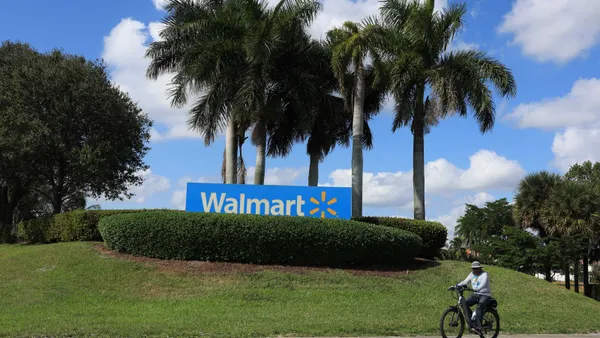Dive Brief:
-
Visa abandoned its planned $5.3 billion acquisition of data aggregator Plaid on Tuesday, following a legal challenge by the Justice Department (DOJ), which sued the company in November, claiming the deal stifles competition in the payments sector.
-
A trial was initially scheduled for June in a California federal court, but Visa and Plaid mutually agreed to end the deal, according to The Wall Street Journal.
-
Plaid, whose application programming interface software integrates with more than 11,000 financial institutions, allows fintechs such as Venmo, Chime and TransferWise to connect to customers' bank accounts.
Dive Insight:
Makan Delrahim, assistant attorney general of the DOJ's antitrust division, called the termination of the deal a "victory for American consumers and small businesses."
"The department is grateful for the team of dedicated civil servants, lawyers and economists, who carefully reviewed this merger and pursued the litigation, ultimately building a case that the merger would extinguish a nascent competitor, further entrench Visa's dominance in the online debit market, and harm consumers," he said in a statement. "Their diligent efforts to prosecute this case convinced the parties to abandon the deal rather than face us in court."
Visa CEO Al Kelly, however, expressed confidence Visa would have prevailed in court "as Plaid's capabilities are complementary to Visa's, not competitive."
"We believe the combination of Visa with Plaid would have delivered significant benefits, including greater innovation for developers, financial institutions and consumers," he said in a statement Tuesday. "However, it has been a full year since we first announced our intent to acquire Plaid, and protracted and complex litigation will likely take substantial time to fully resolve."
During a call with analysts that day, Kelly said the abandonment of the deal won't keep Visa from pursuing partnerships with Plaid or other fintechs.
"There's no question that we have many opportunities to partner with Plaid because we have complementary capabilities, which was a lot of the basis for this deal in the first place," he said. "We are and will be discussing that with them."
Kelly added there were no termination fees owed to either party.
The lawsuit against Visa's planned acquisition comes after the DOJ in August added a financial technology unit to its antitrust division. That's a sign the department is boosting its oversight of the sector, Eleanor Tyler, an analyst at Bloomberg Law, told Banking Dive in November.
In its November complaint, the DOJ cited Kelly's description of the deal as an "insurance policy" to neutralize a "threat to our important US debit business" as evidence the deal represents an anti-competitive move on the part of the payment processor.
During a call with analysts, Kelly spoke out against the DOJ's claims that the deal would have resulted in debit monopolization.
"The reality is that the debit market is highly competitive and highly complex," he said. "Our debit business faces intense competition from a variety of players including 10 different debit networks, and we face vigorous competition from other former payments including cash, checks and credit."
Plaid CEO Zach Perret told the Journal he was disappointed at how much time the DOJ spent investigating and litigate the deal.
"The DOJ timelines are much slower than anyone anticipated," he said. "The reality of leaving our business in a multiyear review ... is not in the best interests of our customers."
The DOJ's success in halting Visa's Plaid deal could result in a slowdown of future fintech acquisitions, Tyler speculated last year.
"The one thing I do keep hearing about competition in this market is that it's essentially a feeding frenzy to pick up a fintech among the legacy players," she said in November. "If this goes through, that intensifies. If it doesn't, then it might slow down."
Mastercard, which has a smaller share of the credit and debit card market than Visa, managed to close its $825 million purchase of data aggregator Finicity in November, without DOJ interference.













